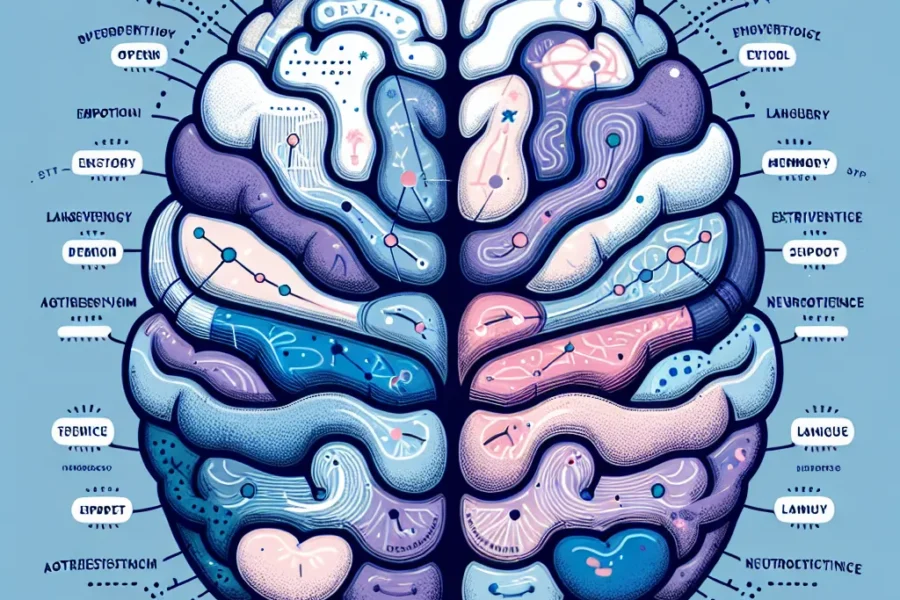Personality tests have become a popular tool in the quest for career clarity and direction. These assessments aim to provide insights into your individual personality traits, strengths, and preferences, potentially guiding you toward a career path that aligns with your innate characteristics. Understanding the link between personality and job satisfaction can be pivotal in finding a profession where you will thrive.
The concept of using personality tests as career guides is rooted in the fundamental belief that the better the fit between a person’s personality and their job, the higher the likelihood of job satisfaction and success. Numerous studies have shown that individuals whose careers are in tune with their personalities tend to be more motivated, engaged, and productive.
In examining the utility of personality tests for career guidance, the Myers-Briggs Type Indicator (MBTI) is one of the most widely recognized tools. Based on Carl Jung’s theory of psychological types, the MBTI categorizes individuals into 16 distinct personality types. By understanding your MBTI type, you can explore careers that suit your communication style, problem-solving approach, and interpersonal dynamics.
Similarly, the Big Five personality traits, also known as the Five-Factor Model, evaluates individuals based on five dimensions: openness to experience, conscientiousness, extraversion, agreeableness, and neuroticism. This model helps predict job performance and satisfaction across various roles. For example, someone with high conscientiousness would likely excel in roles that require attention to detail and organization.
Another renowned personality assessment is the Holland Code or RIASEC model, which links personality types to corresponding work environments. The six types—Realistic, Investigative, Artistic, Social, Enterprising, and Conventional—are associated with particular career fields. A person with a Social type, for instance, might find a rewarding career in teaching, counseling, or social work.
Personality tests can also help identify potential career pitfalls. Recognizing certain traits or tendencies allows for a proactive approach to personal development, whether that means seeking opportunities to hone a particular skill or avoiding environments that could lead to dissatisfaction.
Despite the benefits, it’s crucial to approach personality tests with a critical eye. These assessments should be considered as one piece of the career exploration puzzle, rather than a definitive answer. The results can provide a valuable starting point for deeper self-reflection and exploration.
When reviewing personality test results, look beyond the suggested career lists. Consider how the insights resonate with your personal experiences and the feedback you’ve received from others. It’s also important to weigh the evolving nature of work; some personality traits may lend themselves well to emerging fields or trends in the job market.
Furthermore, career paths are rarely linear, and flexibility is essential. Personality can evolve over time, and so can career aspirations. A career that seems like a perfect fit today might not be the right one ten years down the line. For this reason, periodically revisiting personality assessments can provide fresh insights and help realign career trajectories as personal and professional circumstances change.
Aside from individual assessments, personality tests can also be valuable in an organizational context. Employers can use these assessments to understand the dynamics of their workforce, placing employees in roles that play to their strengths and contribute to a more harmonious and productive workplace.
To maximize the efficacy of personality tests as career guides, it’s advisable to pair them with other career planning strategies. This may include informational interviews, job shadowing, internships, or even volunteering in fields of interest. Additionally, working with career counselors or coaches who can offer personalized advice based on a comprehensive evaluation of your skills, experiences, and goals can prove immensely beneficial.
Remember, while personality tests offer insights, they do not account for all aspects of a person’s skills, desires, and life circumstances. External factors such as education level, financial constraints, family responsibilities, and personal values also play a significant role in shaping career decisions.
In conclusion, personality tests can serve as enlightening career guides, shedding light on the intricate interplay between personality and professional life. They have the potential to highlight careers that resonate with your core traits and lead to greater job satisfaction. When used correctly, these tests can be powerful tools in carving out a fulfilling career path. However, it is imperative to integrate the insights they provide with a broader, more holistic approach to career planning. By doing so, you can craft a career that fits not only your personality but also your complete set of life circumstances and ambitions, ensuring a more satisfying and successful professional journey.



Leave a Comment